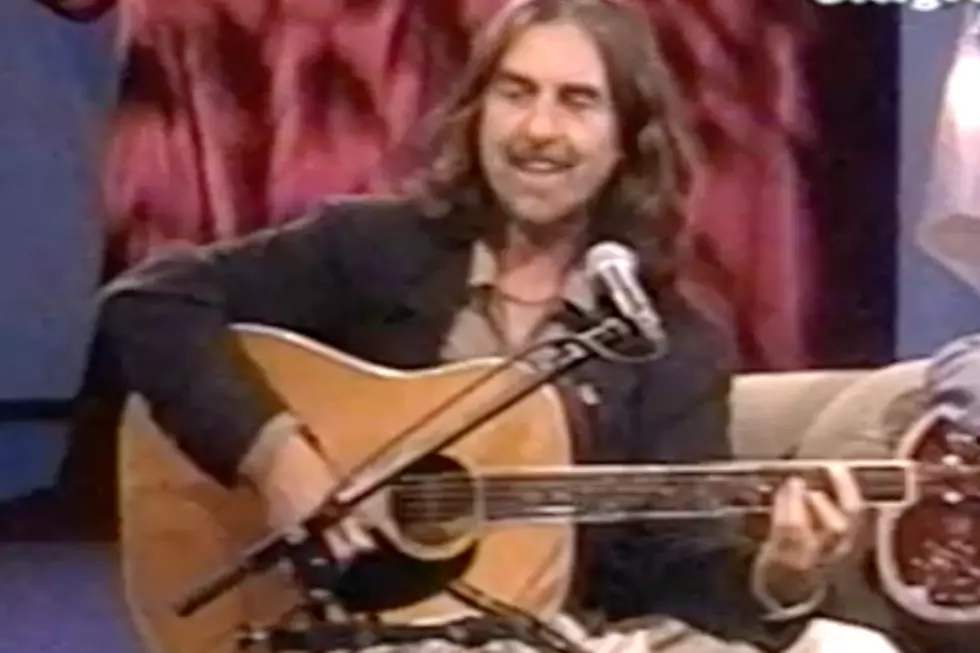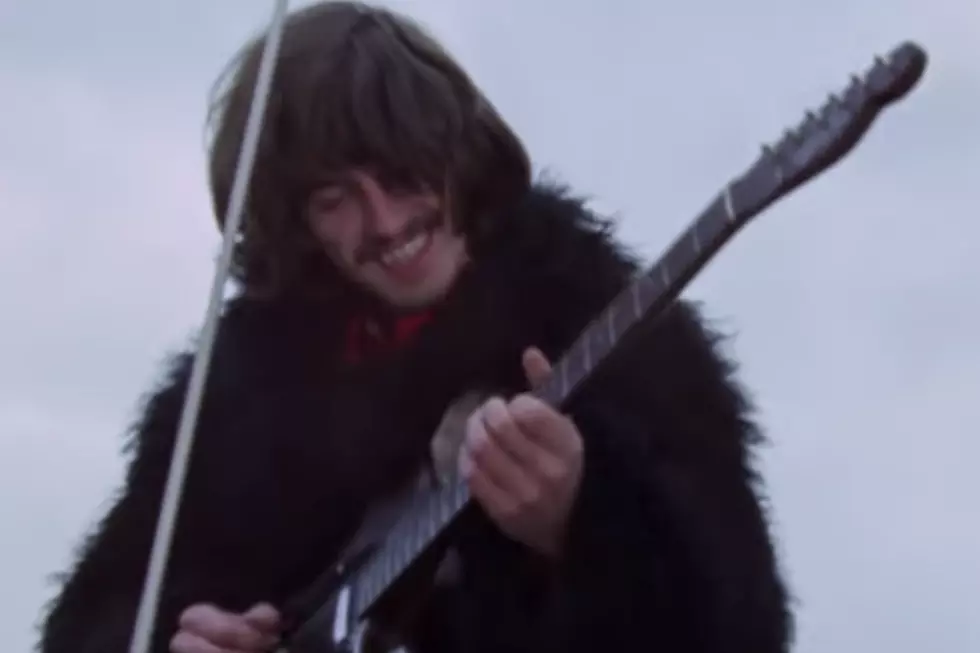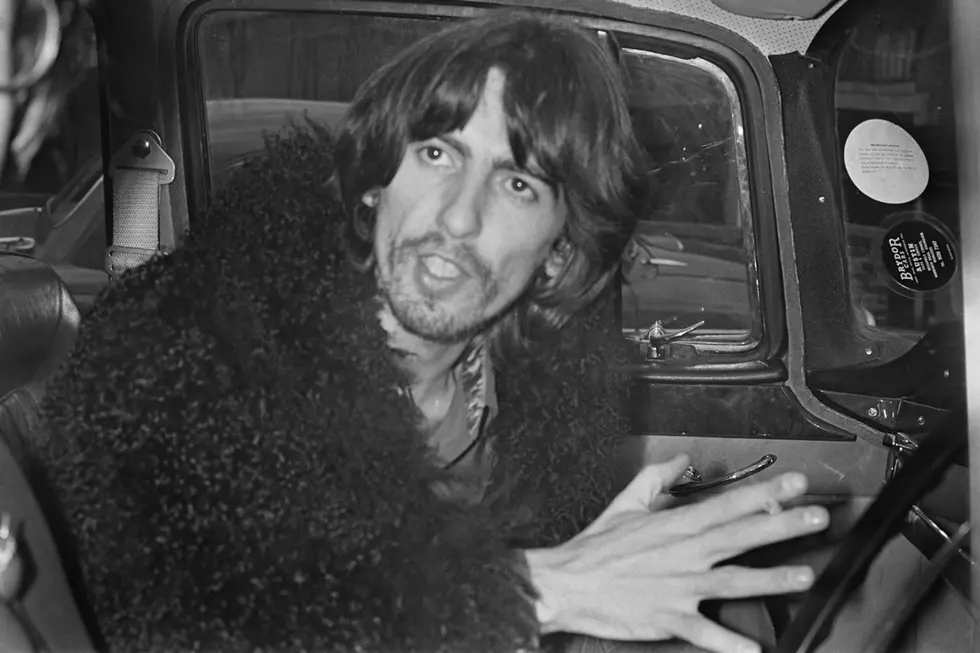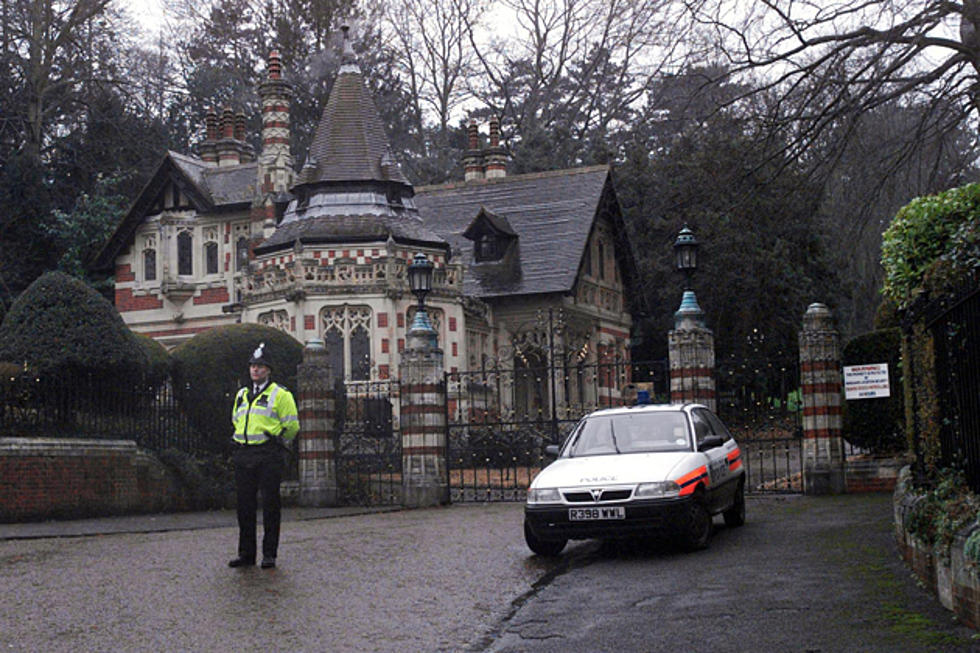
How George Harrison’s Last TV Appearance Became a Meditation on Dying
When George Harrison stopped by VH1 on July 24, 1997 to plug a new project for his old friend Ravi Shankar, it was almost as if he somehow knew this would be his last time on television. The former Beatles star turned expansive on his faith and what happens when we die.
Most of that, as you'd expect, was initially left on the cutting-room floor. VH1 chose to focus instead on the musical portion of his conversation with John Fugelsang, rather than his more intuitive line of questioning. Then Harrison was diagnosed with throat cancer later that year, and during the period before he succumbed, the network reedited this segment to include his meditation on death.
VH1 aired the expanded version on the day Harrison died, finally giving full voice to a remarkably deep conversation on the end of life and salvation. Song performances included "Any Road," a previously unheard number that later appeared on 2002's Brainwashed; "If You Belonged to Me," from the Traveling Wilburys' 1990 album, Vol. 3; and, most touchingly, the title track from All Things Must Pass.
How Harrison got there was pure happenstance: He showed up unannounced with Shankar, then agreed to answer a couple of questions. "George had just produced the Shankar project Chants of India, and they were going to come and give us a little 10-minute sound bite and then take off," Fugelsang told Chuck Daly in 2013.
But there were plenty of musical things to discuss. Harrison spoke at length about Chants of India – even referencing the Beatles' 1966 song "Tomorrow Never Knows" – and also delved deeply into the Concert for Bangladesh, a groundbreaking benefit concert held in conjunction with Shankar.
"I think that was one of the things that I developed just by being in the Beatles was being bold," Harrison told Fugelsang during the interview. "And I think John [Lennon] had a lot to do with that, you know – because John Lennon, if he felt something strongly, he just did it. And I picked up a lot of that by being a friend of John’s, just that attitude of 'Well, just go for it. Just do it.'"
Watch George Harrison Perform 'All Things Must Pass'
All along, Fugelsang wanted to delve into deeper subjects with his hero. He decided to just keep going, engaging Harrison as long as he could – and that meant talking about more than the Fab Four. It was an unplanned but very prescient impulse. The results ended up serving as a perfect summation of Harrison's approach to death.
"I wanted to talk about God, and meditation, and what happens when you die, and the soul," Fugelsang said. "And the whole time the producer’s in my ear saying, 'Get him to talk about John Lennon!' Which, you know, George, he doesn’t really like talking about the Beatles all that much. So we talked about all this stuff that was frustrating my producers, but he did take a guitar in hand ... and it wound up being the last time he ever played in public."
In some cases, Fugelsang said he didn't like the interviewing approach used by his younger self – "I was making inappropriate jokes, I was cutting him off; I was stammering, I couldn’t shut up," he recalled – but Fugelsang remains proud of the complex thoughts they ultimately shared.
"I think it was my lack of polish that made him enjoy the experience, actually," Fugelsang told Daly. "And the fact that I was into the stuff he was into talking about. And I went through many years of being ashamed of myself for finally meeting my idol and being a twit, and it wasn’t until many years later that, when the show aired, they put all the footage back in.
"So the day George died, VH1 aired, all day long, an interview with George and some 25-year-old kid talking about God and the soul, and what happens when you die," Fugelsang added. "It helped me realize, 'Oh, I’m not that same young person anymore.' And it helped me grow, spiritually — the experience of meeting George and doing that."
George Harrison Albums Ranked
See the Beatles in Rock’s Craziest Conspiracy Theories
More From WWMJ Ellsworth Maine










